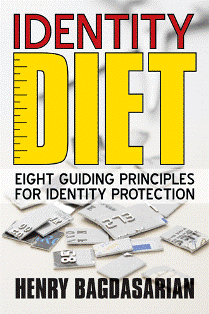Puerto Rico Birth Certificate Reset
The Puerto Rico government acknowledged a while back the need for birth certificate reset for its entire population to stop massive identity theft and fraud cases which have affected others beyond its borders. In January 2010, the government of Puerto Rico implemented a new law aimed at strengthening the issuance and usage of birth certificates to combat fraud and to protect the identity of all people born in Puerto Rico. On July 1, 2010, the law invalidated all existing birth certificates issued before that date by the Puerto Rico Health Department through its Vital Statistics Record Office. In accordance with the new law, the Vital Statistics Record Office began issuing new birth certificates on July 1, 2010 leveraging technology to limit document forgery. It appears that Puerto Rico is not immune to severe identity obesity and fraud as we now know and will explore later in this article.
Puerto Ricans in average request about 20 copies of their birth certificates over their lifetimes because a birth certificate is a major identifier in Puerto Rico, especially for enrolling children in schools. Other than the fact that a birth certificate is a major personal identifier causing various institutions to excessively require them, the institutions also failed to properly protect the birth certificates and dispose of them after they had no more need for them.
The decision to reset the identities of an entire population is a huge step in the fight against identity theft and one that is necessary when identity theft gets out of control such as in this case. According to the Puerto Rico Federal Affairs Administration, hundreds of thousands of birth certificates were excessively collected, retained and stored away unprotected by many government institutions. Such practice has caused many birth certificates to be stolen from various institutions including schools which were subsequently sold for prices up to $10,000 for each birth certificate to any paying buyer for purposes of illegally obtaining passports, benefits and other documentation.
This massive identity mismanagement made Puerto Rico born citizens vulnerable to identity theft and all of its unintended consequences including stolen Social Security benefits, ruined credit, and the inconvenience of being considered suspicious everywhere. According to the government investigation of all passport fraud cases by the State Department's Diplomatic Security Services, 40 percent of the US passport fraud cases involved the birth certificates of Puerto Rico born individuals. Also, in March 2009, the government uncovered a criminal ring that had stolen thousands of birth certificates and other identifying documents from several different schools in Puerto Rico. These various discoveries are forcing the US government and Puerto Rico, a US commonwealth, to take a massive action for birth certificate reset to protect their citizens and the country from illegal entries and transactions.
The government efforts to replace all birth certificates is a massive birth certificate reset undertaking which I advocate for individuals when their unique identity theft cases seem to be irreparable and irreversible. However, recognizing the increased identity theft risks in this case including terrorism and national security risks, the government of Puerto Rico has taken actions to enhance the security of the birth certificate information and protect the public from fraud and identify theft through improved processes and security while leveraging existing technologies.
As the old birth certificates are cancelled and new ones are obtained for administrative reasons such as applying for a passport, residents of Puerto Rico should not rush to get a new birth certificate immediately following their birth certificate reset. This would take us right back to the identity obesity problem that caused all this chaos in the first place. Why would individuals rush to obtain a new birth certificate if there is no immediate need for one? The fact is that if people unnecessarily rush to apply for new birth certificates, they would place themselves at an increased risk of identity theft by acquiring one more identity component that they will need to manage and protect.
Read another article related to birth certificate reset.









